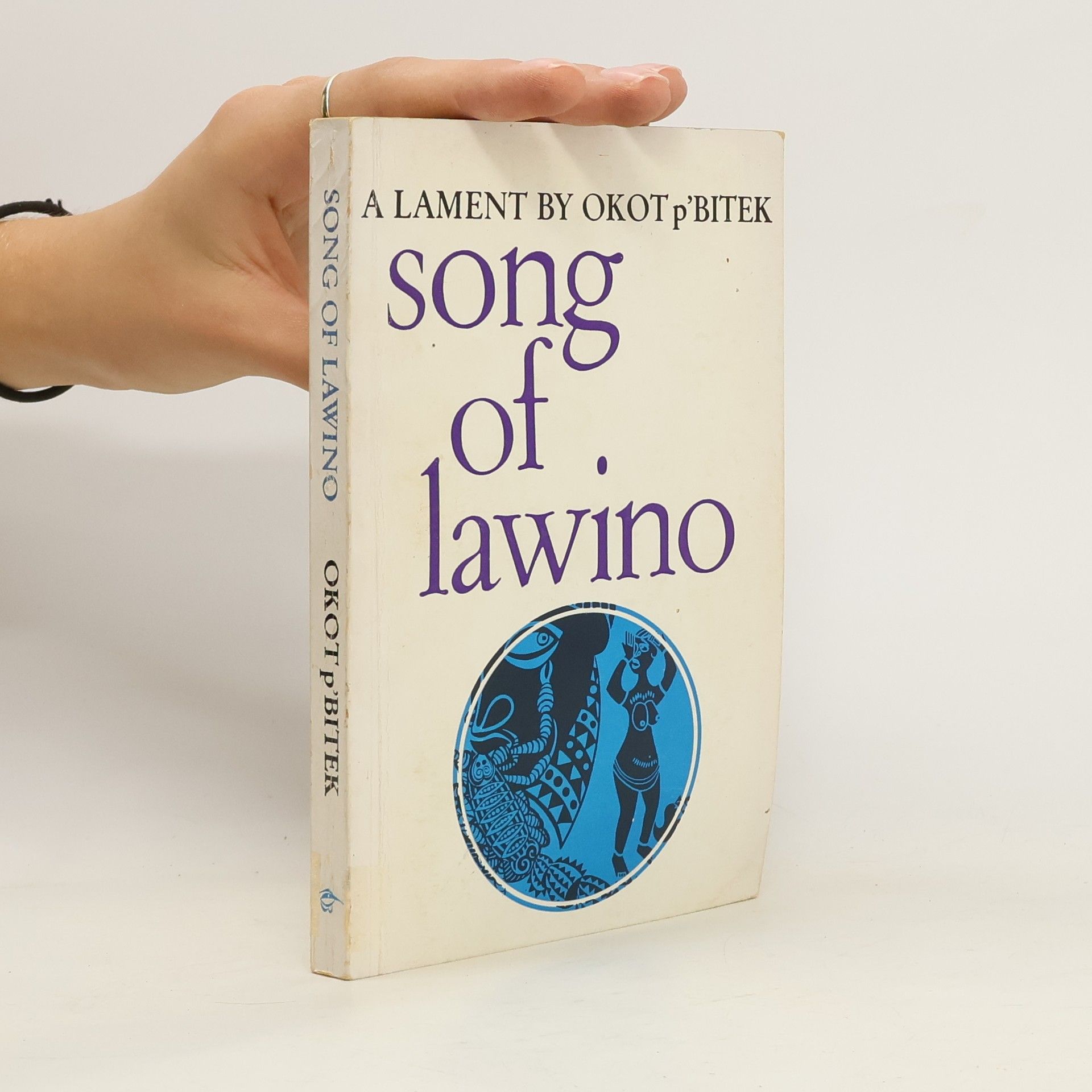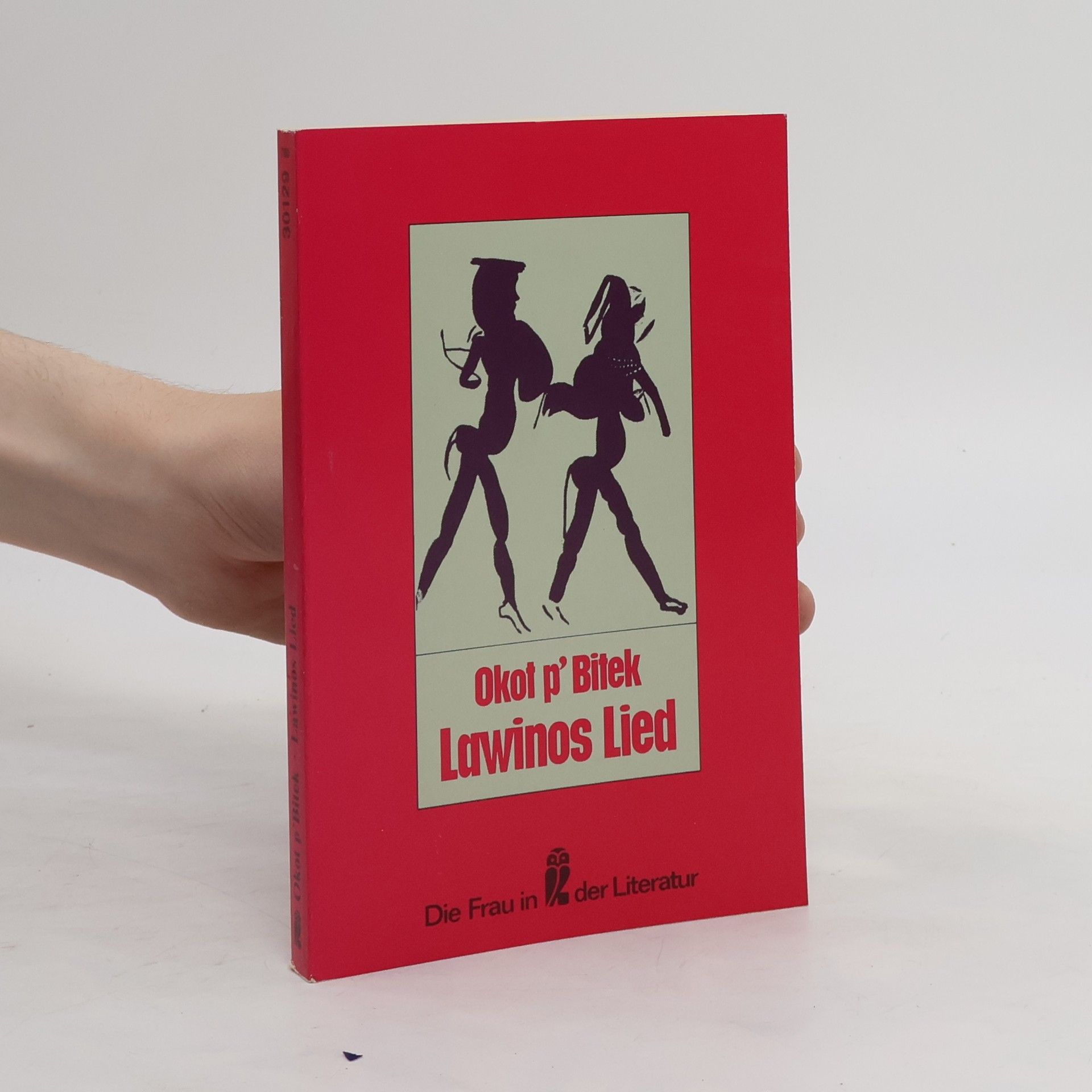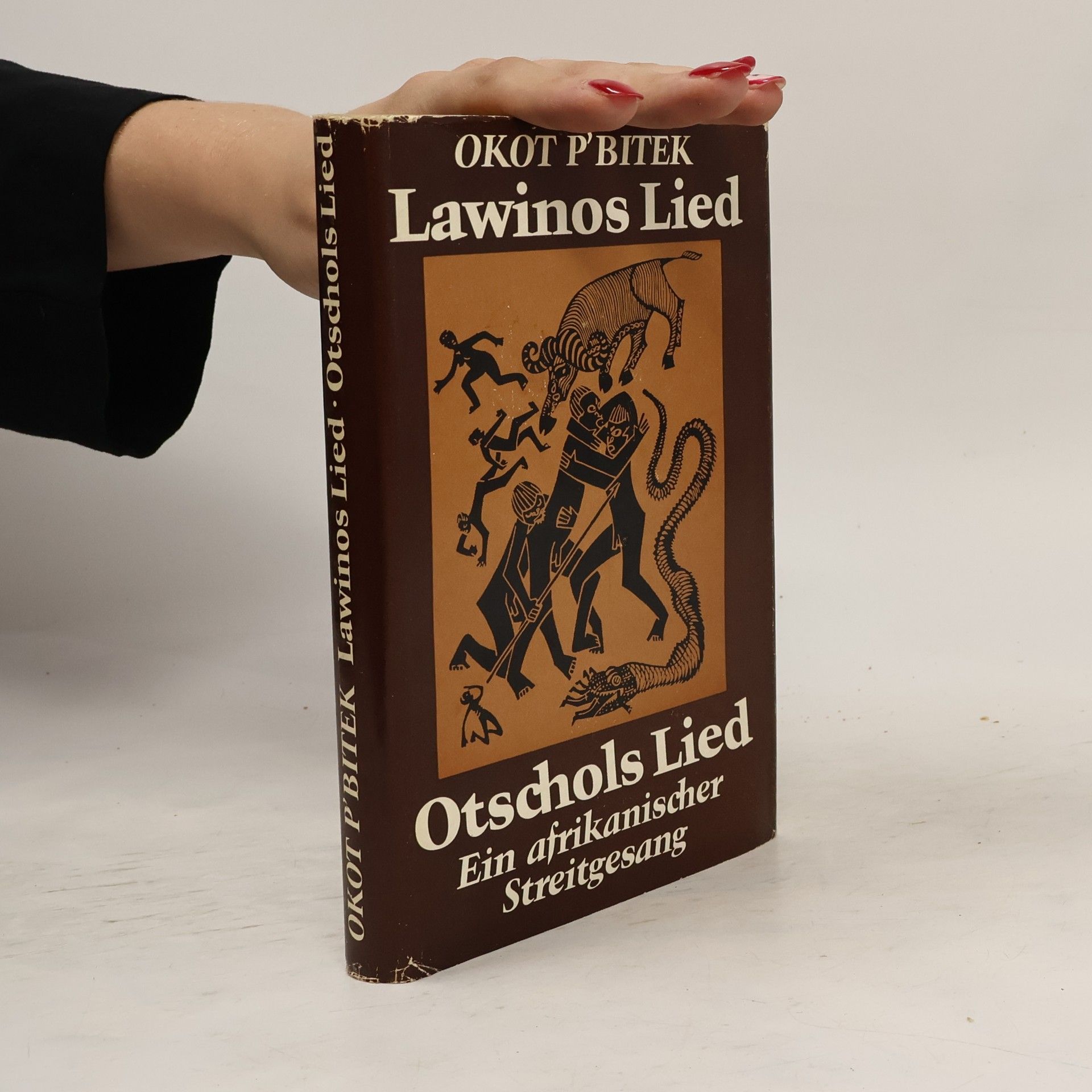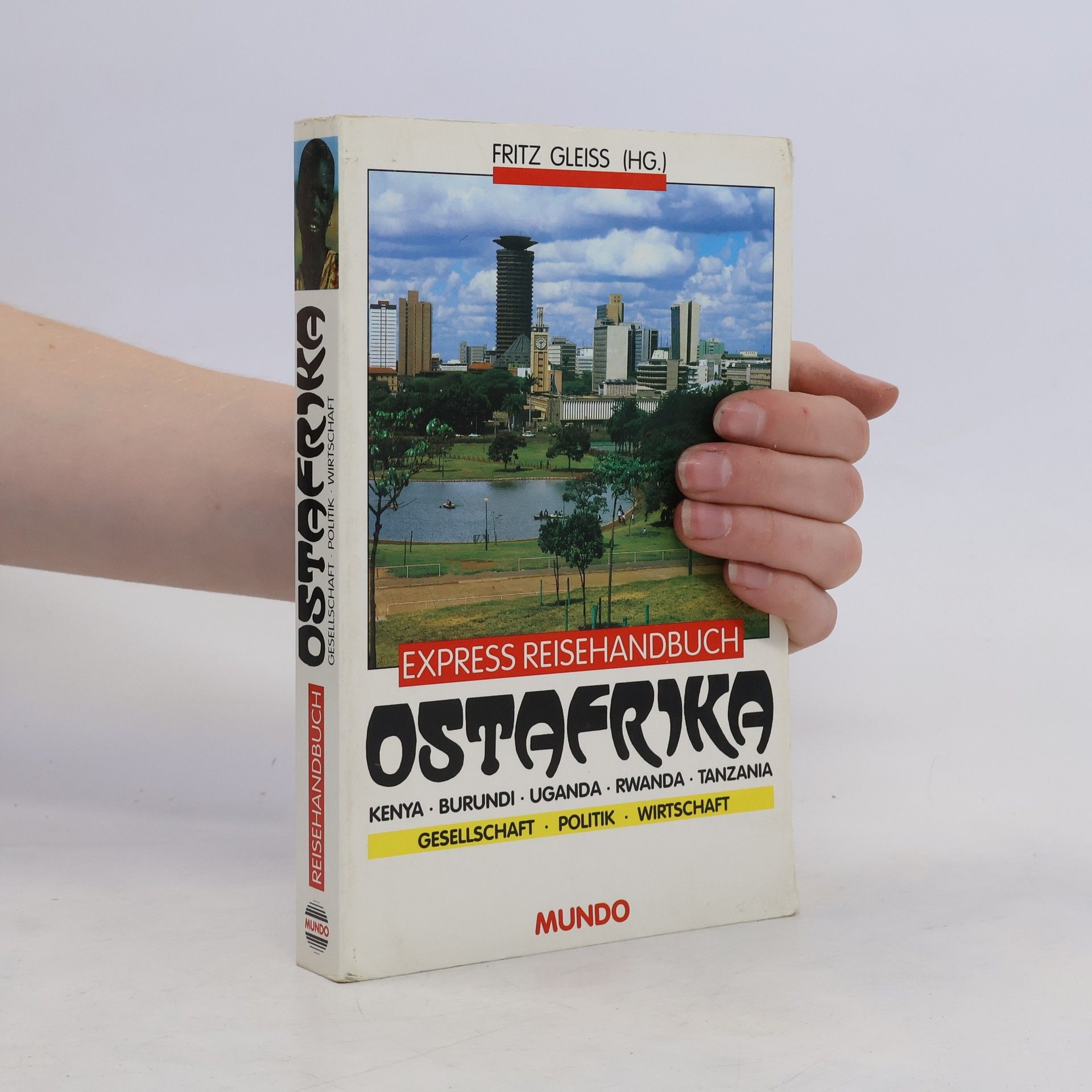Okot P'Bitek Bücher
Okot p'Bitek war ein ugandischer Dichter, der mit seinem langen Gedicht Song of Lawino weithin internationale Anerkennung fand. Dieses Werk befasst sich mit den Wirren einer ländlichen afrikanischen Ehefrau, deren Ehemann ein städtisches Leben angenommen hat und sich alles westlich wünscht. Seine Schriften untersuchen eindringlich den Konflikt zwischen traditionellen afrikanischen Werten und modernem westlichem Einfluss. Mit seiner Poesie verkörpert p'Bitek eine Stimme des Widerstands gegen koloniale Hinterlassenschaften und setzt sich für kulturelle Integrität ein.






Belletristik : Uganda/Atscholi ; Frau - Afrika.
COVID meditations from literary phenom Otoniya J. Okot Bitek The relationship between the quotidian and the extraordinary is symbiotic: they defined each other. In Song & Dread, Bitek becomes a record keeper, observing this contradictory relationship from inside the quagmire of pandemic days. Rife with the paradoxical forces of boredom and intensity, the early days of COVID-19 passed under an inescapable pall. The poems of Song & Dread seek quietude, order, refuge, and space within that shroud. They remind us of community, connectedness, and what is inherently shared in a time of limited access and limitless grief. Innovative and playful in form, the works in this collection are of the time, while remembering an existence outside the present. They juxtapose the sensational news stories of daily turmoil and sorrowful social-media posts with the winnowed-down nature of life in a global crisis. With a keen eye, Bitek documents the ways the strange can become normalized when there is no other option.
Naar Afrika
Verhalen van Wole Soyinka, A.H.M. Scholtz, Breyten Breytenbach, Etienne van Heerden, Kuki Gallmann, Sembène Ousmane, Okot p'Bitek, Moses Isegawa, Bessie Head, Njabulo S. Ndebele, Lieve Joris, Mineke Schipper, Joseph Conrad, Chenjerai Hove, Ryszard Kapuściński, Ben Okri, Adam Zameenzad, Chinua Achebe, Adriaan van Dis, Conny Braam
- 287 Seiten
- 11 Lesestunden